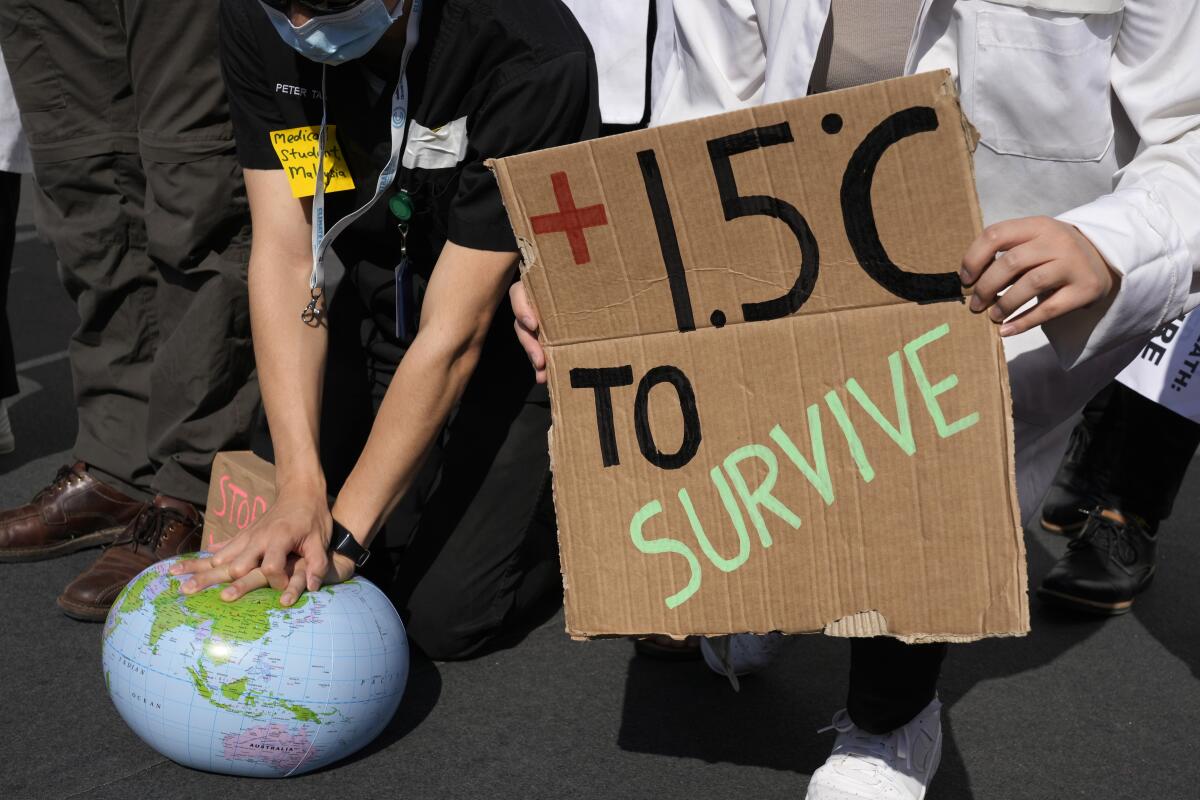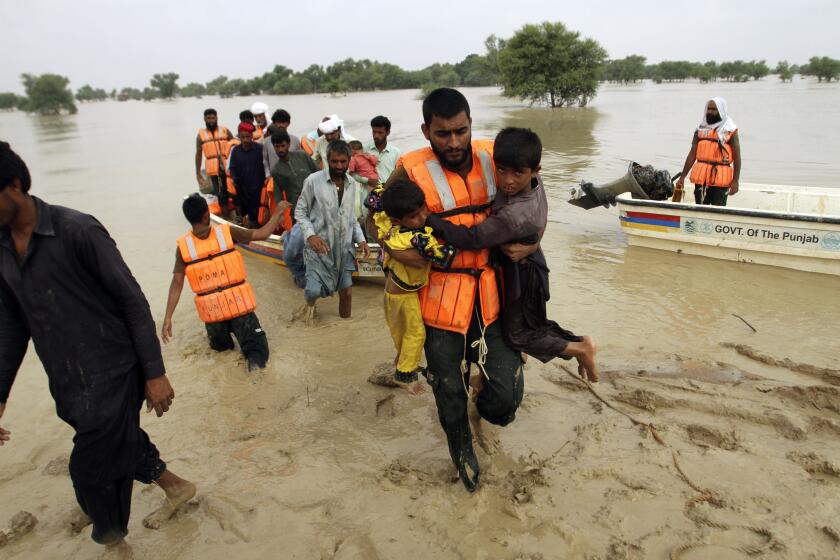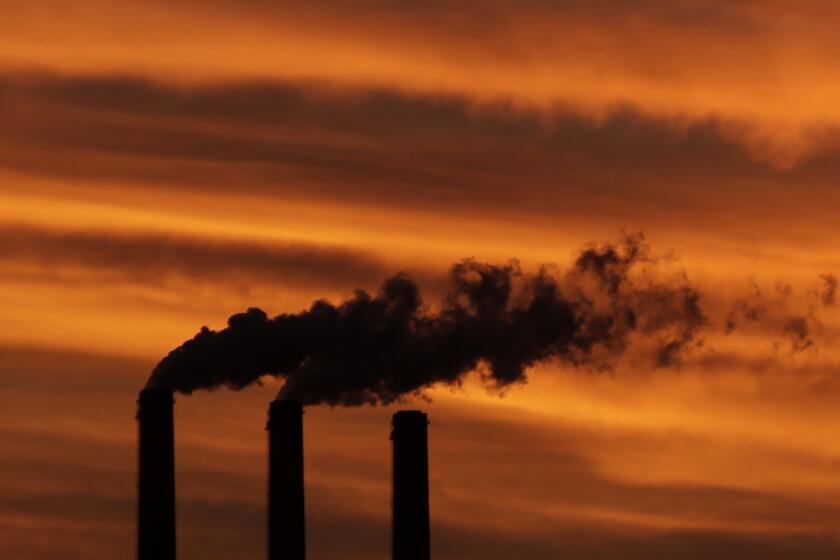Ministers make push to get global climate talks over the line as deadline nears

- Share via
SHARM EL-SHEIKH, Egypt — Government ministers are returning to Egypt to take over negotiations at this year’s United Nations climate talks, providing diplomats with the political backing they need to clinch credible agreements to help prevent disastrous levels of warming in the coming decades.
Talks in the Red Sea resort of Sharm el-Sheikh got off to a plodding start and are behind the pace of previous meetings with three days left before the scheduled close Friday.
“I think we still have a long way to go. But I’m I remain hopeful that we can come to good conclusions,” the European Union’s top climate official, Frans Timmermans, said Wednesday.
A small thaw in relations between the U.S. and China at the Group of 20 meeting in Indonesia has boosted hopes that the world’s top two polluters can help get a deal over the line in Egypt.
U.S. climate envoy John F. Kerry confirmed Wednesday that he and his Chinese counterpart, Xie Zhenhua, had resumed formal talks after they were frozen three months ago by China in retaliation for U.S. House Speaker Nancy Pelosi’s trip to Taiwan.
Asked what his goal for the outcome of the meeting was, Kerry was cautious.
The issue of polluters paying for the climate messes they create around the world is likely to dominate difficult climate talks in Egypt this month.
“We’ll have to see — it’s a late start,” he said.
Delegates have been haggling over whether to restate the 2015 Paris accord’s headline goal of limiting global warming to 1.5 degrees Celsius (2.7 degrees Fahrenheit) and the rules countries set themselves for reducing greenhouse gas emissions. The G-20 meeting in Bali ended with a statement that made 49 references to climate and endorsed the 1.5-degree target.
Officials from developing nations, meanwhile, are pushing for rich countries to make good on pledges of further financial aid for those struggling to cope with global warming. One significant aspect of that could be payments for “loss and damage” resulting from climate change, which developed countries have long resisted for fear of being held financially liable for the carbon dioxide they’ve pumped into the atmosphere for decades.
But there has been a softening of positions among some rich nations that now acknowledge some form of payment will be needed.
The world, especially richer carbon-emitting nations, is not doing enough — nor even promising to do enough — to reach global goals limiting warming.
“Countries that are particularly affected, who themselves bear no blame for the CO2 emissions of industrial nations such as Germany, rightly expect protection against loss and damage from climate change,” German Foreign Minister Annalena Baerbock said as she departed for Egypt.
She acknowledged that negotiators have “a difficult path” ahead of them for a substantial agreement.
Asked about the issue of loss and damage, the EU’s Timmermans said: “We’re all willing to find some substantial steps forward, but we’re not there yet.”
The middle of the second week of climate summits in general is “a deep valley of anxiety,” said Christiana Figueres, the former United Nations climate chief who was at more than 20 summits but not the one in Egypt. She said that’s because there is such a big desire for something to come out of talks, but ”it’s also the moment in which people begin to be much more aware of the short time horizon that is left to be able to deliver something by Friday.”
Toward a more sustainable California
Get Boiling Point, our newsletter exploring climate change, energy and the environment, and become part of the conversation — and the solution.
You may occasionally receive promotional content from the Los Angeles Times.
That pressure “makes us act on the double and hopefully be more creative and also more conciliatory than we were perhaps in the first week,” Figueres said.
Geopolitical tensions have been reflected at this year’s talks, with European Union delegates walking out of a speech Tuesday by Russia’s special climate representative, and a small group of Ukrainian and Polish activists briefly disrupting a Russian side event.
Brazilian President-elect Luiz Inácio Lula da Silva received a more enthusiastic welcome at the talks in Egypt. He met late Tuesday with Kerry and was due to hold talks with other top leaders, despite not yet being in office.
Brazil’s efforts on climate change are seen as vital because its Amazon rainforest territory provides a vast “carbon sink” for the world where emissions can be stored, whereas deforestation would fuel global warming.








